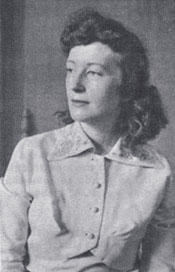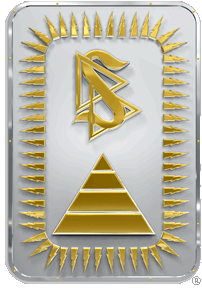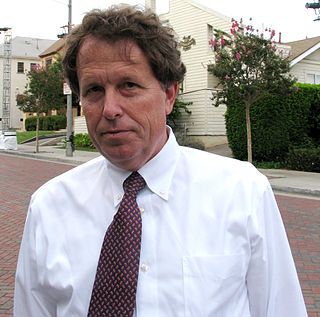
Lafayette Ronald Hubbard was an American author, primarily of science fiction and fantasy stories, who is best known for having founded the Church of Scientology. In 1950, Hubbard authored Dianetics: The Modern Science of Mental Health and established a series of organizations to promote Dianetics. In 1952, Hubbard lost the rights to Dianetics in bankruptcy proceedings, and he subsequently founded Scientology. Thereafter, Hubbard oversaw the growth of the Church of Scientology into a worldwide organization.

The Church of Scientology has been involved in court disputes in several countries. In some cases, when the Church has initiated the dispute, questions have been raised as to its motives. The Church of Scientology says that its use of the legal system is necessary to protect its intellectual property and its right to freedom of religion. Critics say that most of the organization's legal claims are designed to harass those who criticize it and its manipulative business practices.

Since its inception in 1954, the Church of Scientology has been involved in a number of controversies, including its stance on psychiatry, Scientology's legitimacy as a religion, the Church's aggressive attitude in dealing with its perceived enemies and critics, allegations of mistreatment of members, and predatory financial practices; for example, the high cost of religious training:191 and perceived exploitative practices. When mainstream media outlets have reported alleged abuses, representatives of the church have tended to deny such allegations.

Mary Sue Hubbard was the third wife of L. Ron Hubbard, from 1952 until his death in 1986. She was a leading figure in Scientology for much of her life. The Hubbards had four children: Diana, Quentin (1954–1976), Suzette, and Arthur.

The Religious Technology Center (RTC) is an American non-profit corporation that was founded in 1982 by the Church of Scientology to control and oversee the use of all of the trademarks, symbols and texts of Scientology and Dianetics. Although RTC controls their use, those works are owned by another corporation, the Church of Spiritual Technology which is doing business as L. Ron Hubbard Library, registered in Los Angeles County, California.

Operation Snow White was a criminal conspiracy by the Church of Scientology during the 1970s to purge unfavorable records about Scientology and its founder, L. Ron Hubbard. This project included a series of infiltrations into and thefts from 136 government agencies, foreign embassies and consulates, as well as private organizations critical of Scientology, carried out by Church members in more than 30 countries. It was one of the largest infiltrations of the United States government in history, with up to 5,000 covert agents. This operation also exposed the Scientology plot "Operation Freakout", because Operation Snow White was the case that initiated the U.S. government's investigation of the Church.

David Miscavige is the leader of the Church of Scientology. His official title within the organization is Chairman of the Board of the Religious Technology Center (RTC), a corporation that controls the trademarks and copyrights of Dianetics and Scientology. He is also referred to within the Scientology organization as "Captain of the Sea Org".

The term fair game is used to describe policies and practices carried out by the Church of Scientology towards people and groups it perceives as its enemies. Founder of Scientology, L. Ron Hubbard, established the policy in the 1950s, in response to criticism both from within and outside his organization. Individuals or groups who are "fair game" are judged to be a threat to the Church and, according to the policy, can be punished and harassed using any and all means possible. In 1968, Hubbard officially canceled use of the term "fair game" because of negative public relations it caused, although the Church's aggressive response to criticism continued.

The Church of Scientology is a group of interconnected corporate entities and other organizations devoted to the practice, administration and dissemination of Scientology, which is variously defined as a cult, a business, or a new religious movement. The movement has been the subject of a number of controversies, and the Church of Scientology has been described by government inquiries, international parliamentary bodies, scholars, law lords, and numerous superior court judgements as both a dangerous cult and a manipulative profit-making business. In 1979, several executives of the organization were convicted and imprisoned for multiple offenses by a U.S. Federal Court. The Church of Scientology itself was convicted of fraud by a French court in 2009, a decision upheld by the supreme Court of Cassation in 2013. The German government classifies Scientology as an unconstitutional sect. In France, it has been classified as a dangerous cult. In some countries, it has attained legal recognition as a religion.

The Church of Spiritual Technology (CST) is a California 501(c)(3) non-profit corporation, incorporated in 1982, which owns all the copyrights of the estate of L. Ron Hubbard and licenses their use. CST does business as L. Ron Hubbard Library.

Ronald Edward "Ron" DeWolf, also known as "Nibs" Hubbard, was the eldest child of Scientology's founder L. Ron Hubbard by his first wife Margaret Louise Grubb. He is known for having been highly critical of his father and of the Church of Scientology.

Trementina Base is the popular designation for a property of the Scientology-affiliated Church of Spiritual Technology (CST) near Trementina, New Mexico.

This is a Timeline of Scientology, particularly its foundation and development by author L. Ron Hubbard as well as general publications, articles, books and other milestones.

FACTnet, also known as Fight Against Coercive Tactics Network, co-founded by Robert Penny and Lawrence Wollersheim, was a Colorado-based anti-cult organization with the stated aim of educating and facilitating communication about destructive mind control. Coercive tactics, or coercive psychological systems, are defined on their website as "unethical mind control such as brainwashing, thought reform, destructive persuasion and coercive persuasion".
Condusiv Technologies is a Scientology-associated American software company based in Burbank, California. The company was formerly known as Diskeeper Corporation, a name derived from its flagship product, Diskeeper, a file-system defragmentation software package for Microsoft Windows and OpenVMS. Before adopting the Diskeeper name, the company was known as Executive Software International, Inc.

Space Jazz: The soundtrack of the book Battlefield Earth is a music album and soundtrack companion to the novel Battlefield Earth by L. Ron Hubbard, released in 1982. Hubbard composed the music for the album.

Scientology was founded in the United States by science fiction author L. Ron Hubbard and is now practiced in many other countries.

Kendrick Lichty Moxon is an American Scientology official and an attorney with the law firm Moxon & Kobrin. He practices in Los Angeles, California, and is a lead counsel for the Church of Scientology. Moxon received a B.A. from American University in 1972, and a J.D. degree from George Mason University in 1981. He was admitted to the Washington, D.C. bar association in 1984, and the State Bar of California in 1987. Moxon's early work for the Church of Scientology involved legal affairs, and he also held the title of "reverend". He worked out of the Scientology intelligence agency known as the Guardian's Office (GO), and was named as an unindicted co-conspirator after the Federal Bureau of Investigation's investigation into criminal activities by Scientology operatives called "Operation Snow White". An evidence stipulation in the case signed by both parties stated he had provided false handwriting samples to the FBI; Moxon has since said that he did not "knowingly supply" false handwriting samples.

The tax status of the Church of Scientology in the United States has been the subject of decades of controversy and litigation. Although the Church of Scientology was initially partially exempted by the Internal Revenue Service (IRS) from paying federal income tax, its two principal entities in the United States lost this exemption in 1957 and 1968. This action was taken because of concerns that church funds were being used for the private gain of its founder L. Ron Hubbard or due to an international psychiatric conspiracy against Scientology.











